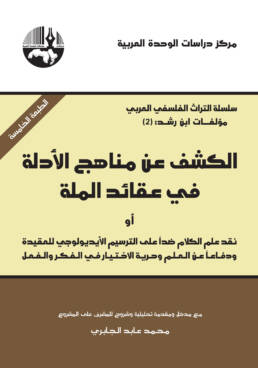The Center for Arab Unity Studies published a book titled “Vladimir Jankelevitch: An Ethical Trial in Aesthetic Guidance”, by Marilyn Yunus.
Although the approach to beauty and morality implies a disruption of the mind, it appears that it carries some of the elements of a solution to the dilemmas of contemporary ethical thought, which seeks for the nature of what persuades people to adopt a behavior that elevates their humanity to the point of completeness. To strengthen this approach, Jankelevich sees aesthetic actions as having an impact on concepts of good and evil.
This book is an attempt to capture the basic categories pertaining to feelings-generated thoughts and their impact on fair judgment, in the context of aesthetics as a designated system of morality in the views of philosopher Vladimir Jankelevich. This beauty-loving Hassidic philosopher found inspiration in the Sufi tradition of relying on the virtues of purifying oneself. As such, his work is focused on seeking the spark of enthusiasm, piety and humanity. To this, he added an aspect of morality that complies with the ethics of the sermon on the sacred and truth within beauty. His philosophy was characterized by an actual approach to reality, thus engaging in the wedding celebration of the paradoxes of life, which were filled with love. His moral Cogito closed the doors to all those that could not comprehend his philosophical language, but how was he able to penetrate the ceiling of metaphysics and speak the ego into existence? And how can a person be uplifted by morals and morality when contradictory shrines that conspire against two souls keep them preoccupied with secondary things?
Add a review
You must be logged in to post a review.
You May Also Like
Ibn Rushd: Biography, Thought, Study and Texts
Price range: 10 $ through 11 $
Exposition of the Methods of Demonstration Relative to the Dogmas of Religion
Price range: 5 $ through 8 $
Pre-Orientalism: Islam in the Christian Thought
Price range: 7 $ through 11 $
The Book of Ishtar: on Dress and the Body
Price range: 7 $ through 11 $
Contemporary Philosophical Thought in Lebanon
Price range: 13 $ through 21 $
Critique of Western Culture: Orientalism and Eurocentrism
Price range: 7 $ through 11 $








